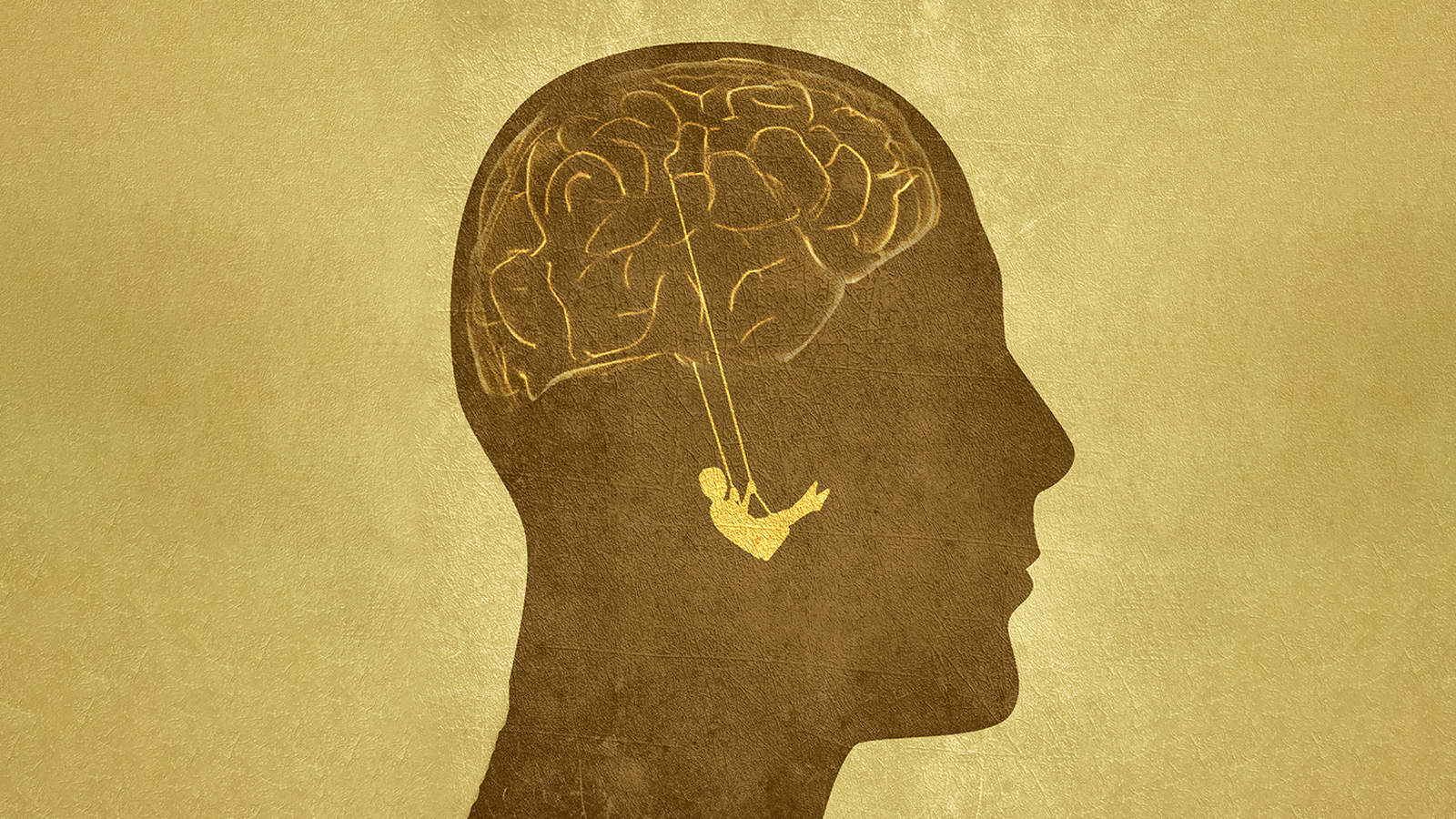Have you ever wondered what kind of person is happiest? It seems like a very subjective sort of question. Most experts would likely agree that anyone can experience psychological disorders, illnesses, and general lack of health, regardless of their personality, values, and traits.
But what if there was scientific evidence that certain traits lend themselves to better overall psychological health? What if learning to adopt these traits could help you in your journey towards a healthier mind? As it turns out, there might be some truth to that concept!
Recently, new research was published in the Journal of Personality and Social Psychology that provides insight into these traits. Titled “The healthy personality from a basic trait perspective,” this study presents some new and potentially groundbreaking findings on positive personality traits and their impact on mental health.
Based on that study, many traits have been uncovered that indicate what could add up to people of better mental state and well-being. These traits join many others that experts have long believed contribute to the ideal level of mental health. Based on this and previous research, without further ado, here’s how therapists reveal 6 traits of psychologically healthy people.
1. They’re Not Impulsive
 An impulsive person is someone who has difficulty managing urges, cravings, and temptation. Those who face this problem are more susceptible to mental health issues, as they experience guilt and regret later on or perform acts that may ultimately harm them.
An impulsive person is someone who has difficulty managing urges, cravings, and temptation. Those who face this problem are more susceptible to mental health issues, as they experience guilt and regret later on or perform acts that may ultimately harm them.
Humanistic psychologist and author Scott Barry Kaufman, Ph.D., states that people should aim to develop low impulsivity because they can reach these outcomes:
- Develop a high frustration tolerance
- More easily resist any temptation.
- Better able to delay gratification
- Become capable of focusing on long-term goals over short-term ones.
It is worth noting that impulsiveness is not the same thing as being a risk-taker, a quick thinker, or a spontaneous person. It refers very specifically to a lack of forethought resulting in ill-advised decisions that could harm you and others without sufficient calculation to determine its safety beforehand.
2. They Are Open To Feelings
Being open to feelings doesn’t just mean being accepting of the emotions of others. More importantly than that, it refers specifically to your acceptance of your own emotions. It means:
- The ability to be aware of your own feelings and thoughts
- The understanding of emotion as a crucial part of everyday life and being human
- The acceptance of difficult and complicated emotions
- The willingness to reflect on feelings, no matter how difficult it can be to confront them
- The openness to experiencing all sorts of natural emotions, including deeper and differentiated emotional states
- The ability to express your own feelings to others in healthy and positive ways
- The experience of more intense emotions than others
This isn’t much of a surprise, based on past research. Numerous studies have pointed out how repressing and suppressing emotions can lead to decreased positive thinking, jeopardizing both physical and mental health. Self-expression of emotion isn’t just healthy – it’s necessary!
3. They Don’t Trap Themselves In Negative Emotions
Negative emotions are normal, and they’re even healthy to experience every once in a while. The problem arises when you become trapped in those negative emotions, leading to difficulty moving past them and potentially leading to long-term negativity. Here are some forms of negativity that can form traits of poor mental health:
· Stress
Stress is a normal part of life, but those who are especially vulnerable may experience it in an unbalanced excess. That much stress can mess up the way your brain processes and handles difficult situations, potentially leading to constant or chronic stress – both of which are, of course, not the best for mental health!
· Angry Hostility
You’ve probably heard these terms separately plenty of times. When put together, they tend to experience negative emotions based on or resulting in anger. Examples of this are annoyance, bitterness, envy, and frustration. Angry hostility can lead to a susceptibility to negative situations, meaning you are more likely to lash out or experience anger from minor situations.
· Anxiety
Anxiety comes with restlessness, stress, and fear, which all take a toll on one’s psychological state. It’s easy to become caught in an endless loop of worries about the future and regrets about the past. Do note that this does not refer to anxiety disorders specifically, but to the general concept of being trapped within anxious worries and thoughts to the point that they become self-fulfilling.
· Depression
Unfortunately, depression is often not controllable, but you should be aware of the things it makes you more susceptible to. Those with diagnosed or clinical depression tend to experience higher shame, guilt, worthlessness, hopelessness, sadness, and loneliness. Combined, it makes plenty of sense that these point to bad psychological health, especially since cycles of negativity are common in depression. Learning to manage a depressive disorder better can help you overcome the worst of these symptoms.
Clinical psychologist and psychoanalyst Jennifer Kunst, Ph.D., who also works with the Fuller Graduate School of Psychology and the Psychoanalytic Center of California, considered vitality a significant sign of mental health. She defines vitality as the state of being more engaged, alive, and inhibition-free – all things that you will have difficulty developing while trapped in negativity.
 4. They Have A High Frequency Of Positive Emotions
4. They Have A High Frequency Of Positive Emotions
Linked to the previous point, most psychologically healthy individuals make it a point to promote and create positive emotions in their lives. If you try to be optimistic, you’re training your brain to sp good things over bad things. As such, the more positive emotions you train yourself to experience, the more psychologically healthy you can become – and vice versa.
Of course, it goes without saying that this is easier said than done. But did you know that faking positive thinking through smiles can actually trick your brain into releasing happy hormones? Numerous studies have shown that the brain can’t tell the difference between a real and fake smile, so it always responds as if the smiles are real. This doesn’t mean you should repress sadness, but that you should learn to incorporate smiling more into your everyday routine.
Being around positive people may also help you train your happiness. Author and psychiatrist Dr. Eva Ritzo states that seeing other people smile makes it easier for you to smile, allowing for even more “training” for your brain.
5. They Are Warm
Warmth refers to acts of affectionate intimacy on an interpersonal level in all sorts of relationships, whether platonic, romantic, familial, or even with strangers. Psychologically healthy people tend to form positive attachments with others easily as they genuinely like being around other people.
Someone who lacks warmth is distant, formal, reserved, and a bit of a loner. While they may still be compassionate, there’s an inherent lack of closeness in all their bonds, if they have any at all. This doesn’t mean having a lot of friends or changing from an introvert to an extrovert. Instead, it means being open and warm in your valued relationships and being friendly to others.
Kunst adds to this trait by listing love as a sign of good mental health. Essentially, in that case, love is a form of warmth that means genuine care for others. A loving person makes room in their heart for the people they value most and makes an effort to repair damage in their relationships, with their main intent always rooted in gratitude and appreciation.
6. They Are Direct And Straightforward
Being straightforward can be difficult. Many people are more willing to tell white lies because they’re sweeter to hear, are more likely to be well-received without creating conflict, and can make others feel a little better. But at the end of the day, a lack of honesty gets you nowhere.
Psychologically healthy people are often genuine in their everyday lives. They are sincere and frank, and their social skills are maintained through means other than uncomfortable deception. They do not use incorrect flattery, nor do they manipulate, deceive, or use underhanded tactics to get ahead. This allows their minds to be uplifted and safe from negative psychological effects related to repetitive lying.
This is another one of Kunst’s stated signs of positive mental health: an overall commitment to truth. This means that you would rather prove real and factual information instead of providing dishonest statements for the sake of idealism or kindness. While there is some nuance to be applied to this concept, it’s a good one to keep in mind.
In the past, research has also released interesting findings regarding the mix of happiness and honesty. Not only are you more likely to be honest when you’re happy, but being honest is linked to other forms of positive thinking and behavior, including:
- Life satisfaction
- Self-control and impulse management
- Feelings of normalcy
- Positive self-belief
- Social success
- Healthy relationships
 Final Thoughts On Some Traits Of Psychologically Healthy People
Final Thoughts On Some Traits Of Psychologically Healthy People
How many of the things on this list can you tick off? As highly positive traits, they’re all values that you may find beneficial to add to your behavior, whether your goals involve improving psychological wellbeing or not.
Despite research into these traits, it’s worth noting that no single trait can ever dictate physical or mental health. Even then, a collection of traits is still not a definitive form of proof of the psychological state. You can have all of these traits and still have mental disorders, and you can have none of them and be psychologically healthy.
However, given the evidence, it’s likely that learning to hone these traits can improve your mental state or make you less susceptible to threats to your mental health. You should always be working on self-improvement, and many of the traits that research over the years has found to be beneficial for psychological health are ones that many would strive to achieve regardless.
At the end of the day, one of the best ways to become mentally healthy is to work on yourself and your wellbeing. You might not be able to control everything, especially if you have a mental disorder, to begin with, but you can learn to handle better and manage the factors that affect you. If you need further assistance in your efforts, you can always speak to a therapist, psychologist, or similar medical professional for advice that works best for you!




















